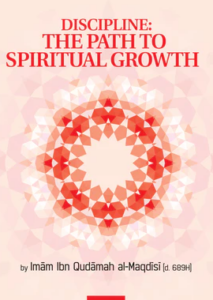In a world rich with diverse cultures and beliefs, Islam stands as one of the major religions practiced by millions around the globe. Whether drawn to its spiritual teachings, intrigued by its rich history, or seeking a deeper connection with the divine, converting to Islam is a significant step for many individuals.
If you’re considering embracing Islam, this guide will provide you with a comprehensive overview of the process, its significance, and what to expect along the way.
Understanding Islam: A Brief Overview
Islam, which means “submission to the will of God” in Arabic, is a monotheistic faith founded by Prophet Muhammad in the 7th century CE. Muslims believe in the oneness of Allah (God) and follow the teachings of the Quran, which they consider the word of God as revealed to Prophet Muhammad. The five pillars of Islam—Shahada (declaration of faith), Salah (prayer), Zakat (charity), Sawm (fasting during Ramadan), and Hajj (pilgrimage to Mecca)—form the foundation of Muslim practice.
Initial Considerations:
Before embarking on the journey to convert to Islam, it’s essential to reflect on your motivations and understand the commitment involved. Here are some initial considerations:
- Spiritual Quest: Are you drawn to Islam out of a sincere spiritual quest or intellectual curiosity?
- Understanding: Have you studied the core beliefs, practices, and values of Islam to gain a deeper understanding?
- Support System: Do you have a supportive network of friends, family, or a community to assist you in your journey?
- Commitment: Are you prepared to embrace the principles of Islam and integrate them into your daily life?
Steps to Convert to Islam:
Converting to Islam is a straightforward process, but it’s essential to approach it with sincerity and conviction. Here are the steps you can follow:
Step 1: Learn about Islam
Take the time to study the fundamental beliefs, practices, and teachings of Islam. You can do this by reading books, attending lectures, or reaching out to knowledgeable individuals or community leaders.
- Explore the foundational beliefs and practices of Islam through books, lectures, and online resources.
- Engage with knowledgeable individuals or community leaders to gain insights into the teachings of Islam.
- Reflect on the spiritual significance and values of Islam to deepen your understanding and appreciation.
Step 2: Declare the Shahada
The Shahada is the declaration of faith in Islam, affirming the belief in the oneness of Allah and the prophethood of Muhammad. It consists of the following phrase in Arabic:
“Ashhadu an la ilaha illallah, wa ashhadu anna Muhammadan rasulullah.”
Translation: “I bear witness that there is no god but Allah, and I bear witness that Muhammad is the messenger of Allah.”
- Affirm your belief in the oneness of Allah and the prophethood of Muhammad by reciting the Shahada.
- Declare the Shahada with sincerity and understanding of its meaning, either in the presence of witnesses or alone.
- Embrace the Shahada as a profound declaration of faith and commitment to the principles of Islam.
Learn More: What is The First Step to Converting to Islam?
Step 3: Purification (Optional)
Some individuals choose to perform a ritual purification known as Ghusl before formally declaring the Shahada. Ghusl involves washing the entire body with water in a specific manner and signifies spiritual purification.
- Consider performing the ritual purification of Ghusl as a symbolic act of spiritual cleansing before declaring the Shahada.
- Follow the prescribed steps of Ghusl, which involves washing the entire body with water in a specific manner.
- Purify your heart and soul, preparing yourself for the transformative journey of embracing Islam.
Step 4: Embrace Islamic Practices
Upon declaring the Shahada, it’s recommended to begin incorporating Islamic practices into your daily life. This includes performing the five daily prayers, fasting during Ramadan, giving to charity, and striving to live according to Islamic principles.
- Begin incorporating Islamic practices into your daily life, such as performing the five daily prayers, fasting during Ramadan, and giving to charity.
- Embrace the principles of Islam, including compassion, humility, and gratitude, in your interactions and decisions.
- Strive to align your actions with the teachings of Islam, fostering spiritual growth and personal development.
Step 5: Seek Knowledge and Community
Continue to deepen your understanding of Islam by studying the Quran, and Hadith (sayings and actions of Prophet Muhammad), and seeking guidance from knowledgeable scholars or mentors. Engage with the Muslim community through attending mosque services, and Islamic events, and participating in communal activities.
- Engage with the Muslim community through mosque services, Islamic events, and communal activities to foster connections and support.
- Seek opportunities to deepen your understanding of Islam and strengthen your faith through ongoing education and community involvement.
Read More: How to Pray in Islam
Conclusion:
Converting to Islam is a deeply personal and spiritual journey that requires sincere intention, knowledge, and commitment. By following the steps outlined in this guide and seeking guidance from the Muslim community, you can embark on this transformative path with confidence and clarity. Remember that the journey of faith is ongoing, and each step you take brings you closer to a deeper understanding and connection with the divine.
FAQs About How to Convert to Islam:
Is it necessary to learn Arabic before converting to Islam?
While learning Arabic can enhance your understanding of Islamic texts and prayers, it’s not a requirement for conversion. Many resources are available in various languages to assist new converts in learning about Islam.
Can I convert to Islam without changing my name?
There is no requirement to change your name upon converting to Islam. Many converts choose to adopt an Islamic name as a symbolic gesture, but it’s entirely optional.
How do I perform the daily prayers as a new convert?
New converts may initially find it challenging to perform the daily prayers (Salah) correctly. It’s recommended to seek guidance from knowledgeable Muslims or utilize online resources and apps that provide step-by-step instructions for performing Salah.
What should I expect from my family and friends after converting to Islam?
Family and friends may react differently to your decision to convert to Islam. While some may be supportive, others may have concerns or misunderstandings about your newfound faith. It’s essential to communicate openly with them and seek to educate them about Islam with patience and compassion.
Can I convert to Islam if I’m from a different religious background?
Yes, Islam welcomes individuals from all religious and cultural backgrounds. Whether you come from a Christian, Jewish, Hindu, Buddhist, or atheistic background, you can embrace Islam by sincerely declaring the Shahada and committing to its principles.













